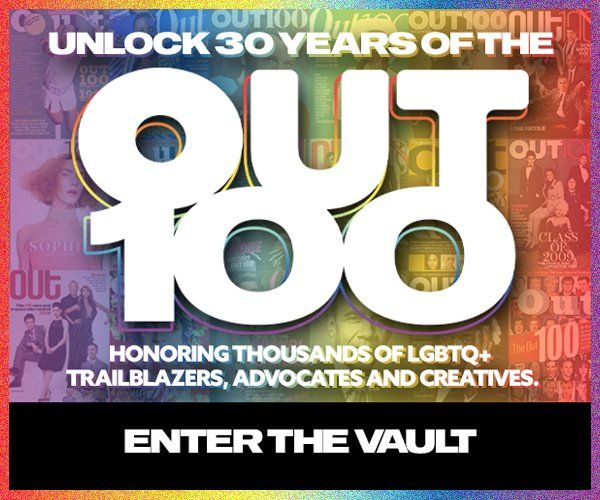You see, ladies, a credit card is like a woman. Once the honeymoon is over, it’s time to pay up. And like any good romance, you fall for the glitz and glamour, the promise that this one thing can make the quality of your life better. Then, it all comes crashing down into a spiraling vortex of pain and self-doubt.
So if you do have credit card debt, consider this your support group. You’re not alone. In fact, the Federal Reserve Board’s Survey of Consumer Finances, a triennial survey that tracks the financial trends of U.S. families, reports that as of 2007, six of the 10 people you see walking down the street are trying to pay off their credit card debt too.
Our Queer nation has been through far too much to let a little revolving credit heartache get us down. We’re fighters! So put down the pint of Ben and Jerry’s, resist the urge to watch Imagine Me & You, again, and for God’s sake, take a shower. We’ll start to heal your credit wounds with some good old-fashioned knowledge.
Let’s begin by facing the fact that a credit card is a loan -- plain and simple. It’s a revolving line of credit that becomes available again as you make payments. It is not free money and it does not go away if you don’t pay it off. In fact, the longer it takes you to pay off your balance the more the credit card companies make in finance charges (fees and interest).
But if you want to have the key to the kingdom -- the secret of all secrets -- pay very close attention to my next words. You will always have a 0 percent credit card with no finance charges if you follow this simple rule: pay off your credit card balance every month on time and in full. That’s all. Too little, too late? Keep reading, help is on the way.
Since you wouldn’t apply for any other loan without knowing the terms, I’ll lay down some quick definitions to take some of the mystery out of credit. The Annual Percentage Rate (APR) is the interest rate on the credit you use on the card. The average daily balance is most commonly how the finance charges are calculated. And the grace period is the number of days you may have to pay your balance without incurring a finance charge. Usually this only applies to those who know the secret, the future versions of ourselves, who pay off their cards on time and in full every month.
Now that we are master credit card wordsmiths, it’s intervention time. I’m willing to wager my VIP Pass to The Dinah that you don’t know the total balance of all of your credit cards or their corresponding APRs without looking at your statements. And I bet that if you do happen to look at your statements, you might need to sit with your head between your knees while breathing into a paper bag after tallying up the total finance charges. In a word: ouch.
And unfortunately the hits keep coming. A little truth about APRs is that each type of transaction comes with a different rate and your payment will always go toward the purchases earning the lowest interest rates, regardless of when the transactions occurred.
So if last month you pulled a cash advance in Las Vegas for $500 at 18 percent APR and spent $600 on your new kegerator – money well spent in my opinion – at 10 percent APR, your payments will go toward your fabulous new home beer distribution vessel until it’s paid off, all the while earning 12 percent for that drunken cash advance. This is naturally all in the fine print we never read through.
more on next page...
\\\
(continued)
So the next item on your list should be to get your free yearly credit report copy and find out how many lines of revolving credit you have open. Don’t be fooled by those catchy commercial jingles, either. The Federal Trade Commission reports that AnnualCreditReport.com is the only authorized source under federal law that gives you your free annual credit report.
That’s right, the Fair Credit Reporting Act actually guarantees every American access to one free credit report every twelve months from Experian, Equifax and TransUnion – the three nationwide credit reporting agencies. So for my mathletes out there who think that this sounds like you actually get three free credit reports per year– bingo! Space it out and request one about every 4 months for free! This will help you more consistently monitor your credit.
Now that you have your credit history, this is a great time to thin your wallet. If there are any lines of credit on your report that either you didn’t know you still had open or don’t ever use, call and cancel them! Don’t be a credit card hoarder. Only keep the cards that you use regularly or that yield you benefits that are worth the corresponding finance charges.
But unfortunately for us plastic-yielding Americans, most of these companies are slashing limits and raising interest rates in response to the credit crisis. That can mean a hard road back to $0, as well as a decline in your credit score.
For this reason, it’s crucial that you contact each of your credit card companies to find out what your limits are and if you could possibly have your limit decreased. Also find out what your interest rates are on purchases, cash advances and balance transfers. Now, if you are surprised by how high they are, the rates may have recently increased.
This is a great time to leverage your status and account history with the cardholder to work for a lower rate. If most of the cards you have are rewards cards that typically yield higher APRs, they may be able to suggest another product that will more closely align with your current credit needs.
All and all, the most important thing you can do is keep current on your payments. If you continue to carry balances and having the cards in your wallet proves too tempting, keep them at home. If a couple months without the latest camping gear, sporting equipment or whatever else you break out the plastic for aren’t going to pay off your cards, contact a credit counseling agency for assistance. They will be able to help you devise a plan to get out of debt.



























































































































